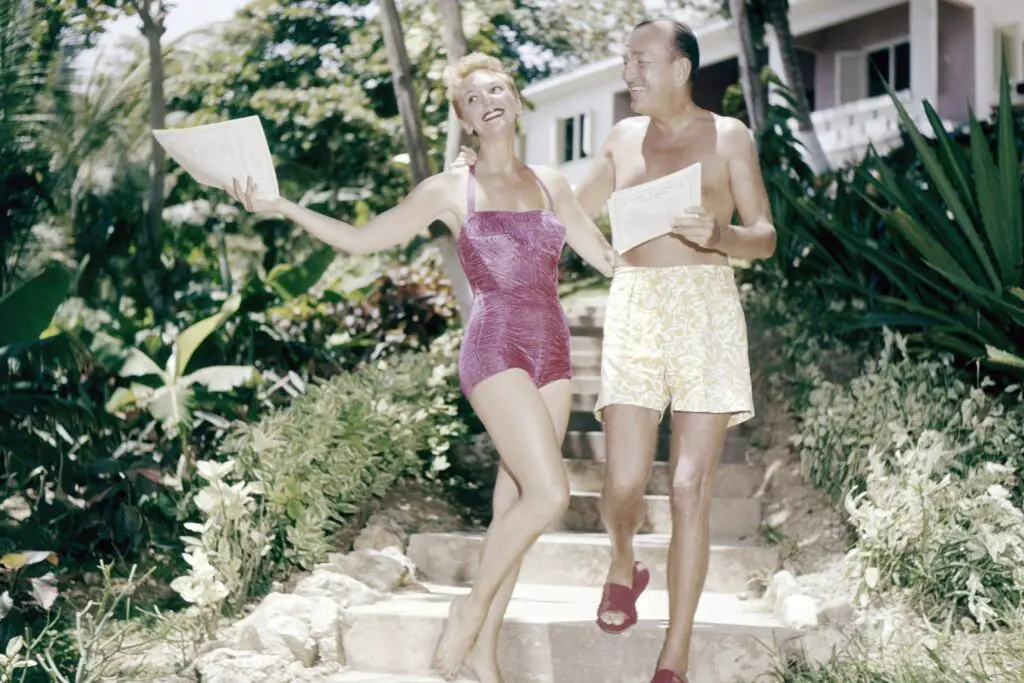1. Don’t You Dare Whistle Underwater in Vermont

At some point, lawmakers in Vermont decided that whistling underwater was just too unruly to be tolerated. It’s hard to tell if they were trying to prevent pranksters or protect public pools from mischief, but the law was very real and very specific shares Listverse. Of course, the logistics of enforcing this are baffling. How would anyone hear the whistle? And what sort of person has that kind of lung power?
While it might sound like a joke now, back then the idea of setting rules for public behavior was taken seriously, even if it veered into the absurd. Small towns especially had a habit of passing overly detailed ordinances to keep peace. Most folks probably didn’t even know this law existed until someone pointed it out for laughs. But yes, technically, whistling underwater could once get you in trouble in Vermont adds Only In Your State.
2. Ice Cream on Sundays? Not in Tennessee

In Tennessee, it was once illegal to sell ice cream on Sundays—unless it was in a cone. Cups? Forbidden. Bowls? Out of the question. But if you scooped it into a cone, that was somehow acceptable. The law sounds like something a confused dessert enthusiast made up, but it reflected how seriously “blue laws” used to be taken says Nashville Lifestyles.
These laws were rooted in religious values meant to preserve the sanctity of the Sabbath. That meant cracking down on everything from liquor sales to even leisure snacks. Ice cream in a bowl? Too leisurely, apparently. But a cone, eaten on the go, passed the moral test. It’s a small glimpse into how strange Sunday restrictions once were adds WSMV.
3. Men with Mustaches Couldn’t Kiss Women in Iowa

There was a time in Iowa when mustached men were legally barred from kissing women in public. The law, as bizarre as it sounds, was likely a holdover from health concerns during the late 1800s and early 1900s. Facial hair was sometimes thought to harbor germs, and public health was becoming more regulated.
Still, it’s wild to think a whiskery kiss could land someone in legal trouble. The law may have also been connected to outdated ideas of propriety and hygiene, mixing moralism with bad science. It probably wasn’t enforced often, but the fact that it was ever written into law says a lot about how cautious lawmakers used to be. And how seriously they took mustache maintenance.
4. You Could Be Fined for Falling Asleep in a Cheese Factory

Wisconsin, of course, had to get oddly specific when it came to its favorite food: cheese. There was once a law stating that workers in cheese factories could not fall asleep on the job or risk a fine. It may have seemed logical at the time—cheese-making requires precision and timing. But to modern ears, it sounds like a quirky punchline.
The seriousness of the law likely reflected the importance of the dairy industry in the state. Keeping standards high was no joke when your economy relied on curds and whey. Still, you have to wonder how many sleepy workers were actually fined. The thought of someone getting written up for dozing off next to a vat of cheddar is oddly charming.
5. In Missouri, You Couldn’t Drive with an Uncaged Bear

At one point in Missouri, there was a real law prohibiting people from driving with an uncaged bear in their vehicle. It sounds like the setup for a sitcom episode, but the law came from actual concerns about public safety. While most people don’t keep bears as pets, apparently enough tried it to prompt legislation.
This was likely written in a time when exotic pet ownership wasn’t as heavily regulated. Some traveling performers or even eccentric locals might have thought it fine to drive their bear around. The law was deadly serious, though. It wasn’t about cruelty, but about preventing highway chaos in case a bear decided to ride shotgun.
6. In Alabama, It Was Illegal to Play Dominoes on Sunday

If you were hoping to have a relaxing Sunday afternoon with friends and a stack of dominoes in Alabama, you’d be out of luck—at least, back when this law was in effect. The state once banned all domino playing on Sundays as part of its blue laws. It didn’t matter if it was a friendly game or a high-stakes match. It was simply not allowed.
The reasoning had less to do with dominoes themselves and more with preserving the Sabbath. Lawmakers feared even innocent games could lead to gambling or distract people from church. It’s funny to picture someone being fined for quietly shuffling tiles, but at the time, this was a real concern. Sundays were for sermons, not strategy.
7. No Pretending to Be a Psychic in New York

At one point, New York had a law making it illegal to pretend to tell fortunes. If you claimed psychic powers but couldn’t prove them—surprise!—you could be arrested. This was a serious attempt to crack down on fraud and exploitation, particularly of people who were grieving or vulnerable.
The law walked a strange line, since it technically allowed for fortune-telling if it was done “for entertainment purposes only.” That meant professional psychics had to add a little disclaimer to avoid breaking the law. While it may seem skeptical and harsh, it showed that lawmakers were willing to step into the mystical world to keep things honest. Even if the law itself felt like something out of a tarot card reading.
8. In Connecticut, a Pickle Had to Bounce

In the 1940s, Connecticut passed a law stating that a pickle was only officially a pickle if it could bounce. The regulation came after some sellers were caught selling spoiled, low-quality pickles. To weed out the frauds, authorities came up with a very specific test. If it didn’t bounce, it didn’t count.
This law became a minor legend among food inspectors and oddity lovers alike. The bounce test may sound silly, but it was a way to guarantee freshness and protect consumers. Of course, it also sparked a lot of jokes. Somewhere out there, someone probably tried to get away with pickled cucumbers that barely wobbled and learned the hard way that Connecticut wasn’t messing around.
9. California Once Banned Riding Bikes in Swimming Pools

In an attempt to curb dangerous stunts, California cities like Los Angeles once made it illegal to ride a bicycle through a swimming pool. The law likely emerged during the early days of skate and stunt culture, when drained pools became playgrounds for adventurous teens. Bikes in empty pools? Not on their watch.
The idea was to prevent injuries and property damage. But of course, banning something usually makes it more appealing. Despite the risk, thrill-seekers kept at it, and some even became pioneers in the BMX scene. The law eventually faded in relevance, but for a while, it was taken very seriously by pool owners and cops alike.
10. In Arizona, Cutting Down a Cactus Could Land You in Jail

Arizona took its native flora seriously, especially the iconic saguaro cactus. At one time, cutting one down could land you behind bars for up to 25 years. That’s not a typo. The cactus was so valued that harming one was treated like a felony offense.
This law wasn’t about gardening—it was about preserving a fragile and unique desert ecosystem. Saguaros take decades to grow and were being destroyed for development or novelty. The punishment may sound excessive, but it was a bold statement of environmental protection before it was common. Arizona wanted to make sure people knew the desert had rules.
11. Don’t Get a Fish Drunk in Ohio

Yes, in Ohio, it was once against the law to get a fish drunk. No, this isn’t a weird metaphor or a misunderstanding—it was a real law. Apparently, it stemmed from concerns about people dumping alcohol into water or using it to stun fish, which affected local wildlife.
Even if it sounds silly, the law reflects early efforts to protect animal welfare. It’s not like people were throwing wild fish parties, but they were sometimes using booze in fish traps or trying strange methods to catch them. Ohio lawmakers weren’t amused. They laid down the line: no drunk fish on their watch.
12. In Washington, You Couldn’t Harass Bigfoot

Washington state once passed legislation that made it illegal to harass or kill Bigfoot. Yes, the mythical creature was given legal protection. While the law wasn’t necessarily about believing in Sasquatch, it was more about keeping people safe from each other. After all, a lot of hunting accidents happen when people think they’ve spotted something unusual in the woods.
The law served both as a deterrent to reckless behavior and a kind of tongue-in-cheek acknowledgment of local folklore. Some counties even posted signs warning of penalties for harming Bigfoot. Whether anyone truly expected to see the creature, the message was clear: don’t mess with Washington’s favorite forest legend.
13. Florida Once Outlawed Singing in Public While Wearing a Swimsuit

In Florida, a woman could once be arrested for singing in public while wearing a swimsuit. The law seemed to blend modesty, noise control, and some outdated ideas about “ladylike” behavior. Beaches were fine for swimming, but apparently not for singing a tune while you did it.
It’s hard to say how often this law was enforced, but it was certainly on the books. Many beach towns took public decency rules very seriously during the early to mid-1900s. And while the idea of breaking into song while sunbathing doesn’t seem scandalous today, it was once seen as pushing the limits of propriety. Florida wanted its beachgoers tan, quiet, and fully clothed if they planned to belt out a tune.
